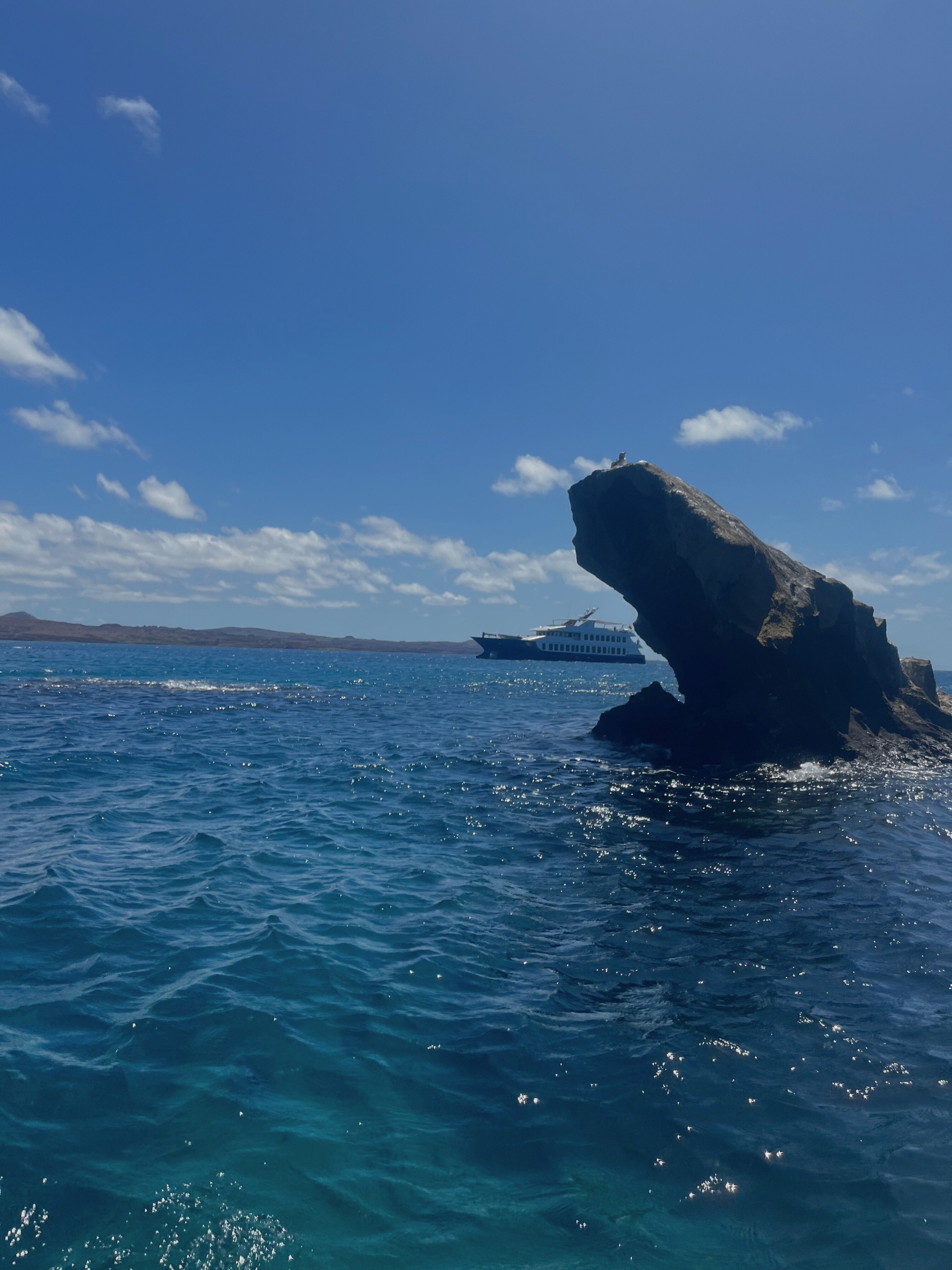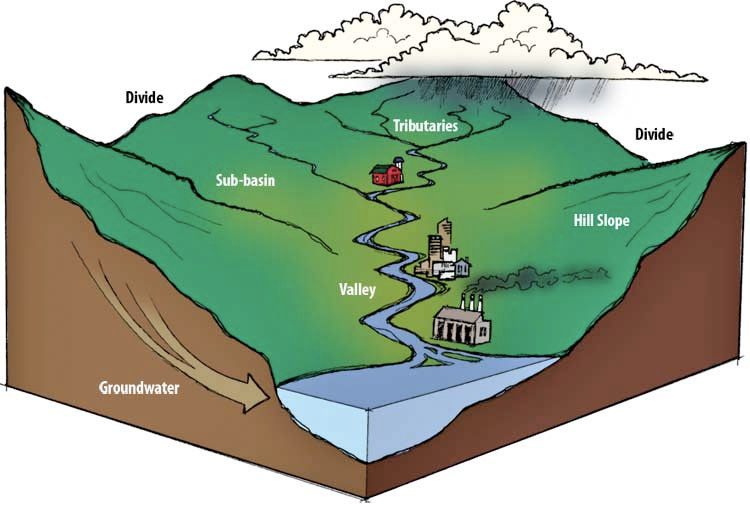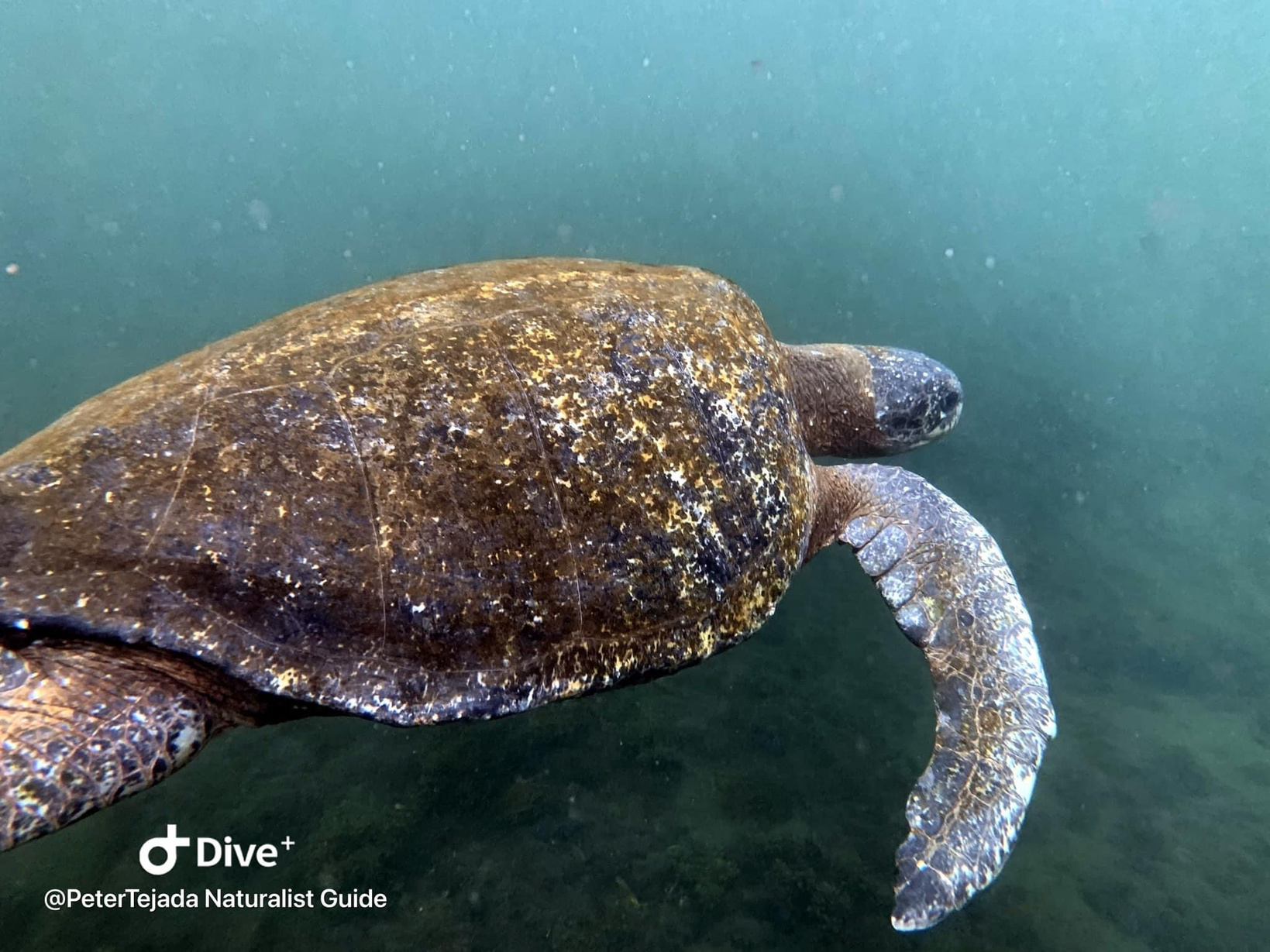
Water is
the lifeblood of the earth.
Watersheds: Think Global, Act Local Advocates, Reduces Waste, and Educates to ensure clean water for ALL.
Picture captured by Brittany Costello in the Galapagos Islands, Ecuador
Committed to cleaning up the mess
Watersheds: Think Global, Act Local is an initiative (soon-to-be non-profit) founded in 2021 dedicated to protecting all living things from pollutants, whether visible or invisible. Our partners and volunteers collaborate to ensure that water quality and quantity are at their utmost. Whether through education, collaboration with legislators and farmers, or hands-on involvement in cleanups and water monitoring, we champion healthier waterways across the planet.
The A.w.e.some Strategy
Advocacy
Water Testing, Speaking Engagements, Published Research, Legislative Work, and Funding & Delivering Reverse Osmosis Water Treatment Systems.
Waste Reduction
Community Cleanups, Ongoing Can Drives, E-Waste Collection Centers, and Plastic Sleeping Mat Workshops.
Education
Teaching farmers about Conservation Cost-Share, Connecting farmers to resources, Educating legislators, Lobbying for regulations, Published Coloring Book & Children’s Book, Elementary School Curriculum, and Classroom visits.
What in the world is a watershed?
No matter where you are on Earth, you're in a watershed—a place where all the water flows to a common destination. This includes land, rivers, lakes, and the water underground. Watersheds are defined by tracing along the high points, like mountain ridges, where water flows down into rivers or streams. Surface water comes from springs, seeps, and rain, while groundwater is the water that soaks into the ground. Even though underground water doesn't always follow surface boundaries, it's still connected to the surface water. Both surface and underground water in a watershed are essential for drinking, for people and animals.
It's crucial to realize that every one of us lives within a watershed. This means that the choices we make every single day impact the health of the land and water around us—and ultimately, our own well-being. From the products we use to the way we dispose of waste, our actions can either protect or harm the delicate balance of our watershed. By making mindful decisions to conserve water, reduce pollution, and preserve natural habitats, we not only safeguard the environment but also ensure a sustainable future for ourselves and all living beings.

Picture source: Primary components of a watershed (Heathcote, 1998).

Dedicated to water, Dedicated to life.
3,851
Hours completed.
41,276.94
Miles Travelled.
19,602
People engaged via in-person events and online resources.
Updated May 3, 2024
Picture captured by Brittany Costello in the Galapagos Islands, Ecuador
Facing the Facts: Protecting Watersheds, Preserving Life.
- When drinking from a plastic bottle, you ingest 250,000 more microplastics than you would from the tap.
- 51% of US Rivers and 55% of US Lakes are polluted and deemed unsafe for swimming, fishing, and aquatic life. (EcoWatch)
- 2 billion people worldwide consume contaminated water (World Heath Organization).
- 1.7 - 2.2 million people die from water pollution every year.
- About 5,000 children die every day from diarreah cause by unsafe drinking water (CDC)
- 1 in 9 people worldwide drink water from unimproved and unsafe sources with water pollutants (UNESCO)
- According to EWG (2021), 692 water utilities in Iowa have found nitrate levels (among other contaminants) surpassing health guidelines.
- Nitrates enter our waterways from agricultural runoff. When ingested, your risks for cancers, heart disease, and declined cognitive function increase.
- Over 73 kinds of pesticides have been found in US drinking water sources.
- 8 million tons of plastic ends up in our oceans every year.
- Close to 50% of people in the WORLD don’t have access to clean water.
- Only about 1% of the Earth’s water is available for human use.
- According to WHO, in 2022 at least 1.7 billion people worldwide use a drinking water source contaminated with feces.
- World Wildlife predicts approximately 2/3 of the world’s population will face water shortages caused by water pollution in the year 2025.
- Over 1.2 TRILLION gallons of untreated sewage, groundwater and industrial waste are discharged into US waterways each year.
- Since 1999, Iowa’s rivers have been washing away an average of 580 million pounds of nitrogen each year! In 2016, the nitrogen load reached 1.25 billion pounds.
Watershed health is crucial for supplying clean drinking water, mitigating flooding, increasing economic function, and protecting wildlife. Safeguarding watersheds means safeguarding humans.
ACting for waters: How You can help
Water testing
Request a free kit from Izaak Walton League, or join me as I lead a water testing event near you!
donate/Sponsor
Monetary donations (for Reverse Osmosis Water Treatment Systems), Can Drive (for Reverse Osmosis Water Treatment Systems), Plastic Bags (Workshops)
Install Rain BARRELs
Collect rainwater and use it for watering gardens and lawns. This reduces stormwater runoff.
Speaking engagements, Classroom visits, Workshops, etc.
Volunteer
Create your own cleanup event, or join me as I lead one near you!
Reduce your chemical usage
Use eco-friendly cleaning products, minimize pesticide/fertilizer use, and properly dispose of hazardous materials
Children’s Book
Purchase HERE
Coloring Book
Purchase HERE
Etsy Shop
Visit HERE
Request a FRee button
Fill out THIS form
Plant Native
Implement rain gardens
Planting native species in gardens and landscaping supports local ecosystems, reduces water consumption, and prevents soil erosion.
These capture and filter runoff, promoting infiltration and reducing pollutants in water.
Clean after your pets
Properly dispose of pet waste to prevent fecal contamination of waterways.
Learn more about your local watershed
Write your address in this search engine to find out what watershed you live in and it’s health data.
Sleeping mat workshops
Join a workshop to make sleeping mats and tote bags for people experiencing homelessness. This saves up to 1,000 plastic bags/mat!
Contact your elected officials
Advocate for green infrastructure, stricter regulations, waste management, watershed protection, etc.
Practice Responsible boating and fishing
Follow regulations for these activities, properly dispose of fishing line and bait containers, and avoid releasing live bait or non-native species into waterbodies.
Reduce impervious surfaces
Use permeable materials (like brick pavers, gravel, etc.) for driveways, walkways, and patios to allow rainwater to infiltrate into the ground, reducing stormwater runoff and preventing erosion.
Educate others
Share what you’ve learned about watershed issues, conservation practices, and ways t s to get involved with friends, family, and neighbors to raise awareness and inspire collective action!
Reduce, reuse, recycle
Decline single-use materials (like straws, bags, and utensils), don’t throw trash outside, invest in reusable products, and recycle when you must.
Questions?? Contact me here: officiallybrittany.watersheds@gmail.com
Passionate about the earth, passionate about you.
Brittany Costello
Founder and CEO
About Brittany
A 22-year-old Iowa native, Brittany is a passionate advocate for the environment and a dedicated marine biologist (PhD) in the making. Growing up along the picturesque Mississippi River sparked her love for nature, eventually leading her to pursue a Bachelor of Science degree in Environmental Sciences with a Life Science Emphasis from the University of Northern Iowa.
Brittany's journey is a testament to her multifaceted interests and commitment to making a positive impact. An integral part of her life has been her involvement with the Miss America Opportunity, where she honed invaluable leadership and communication skills. Through this platform, she founded Watersheds: Think Global, Act Local —to enhance water quality starting in the watersheds. With a string of accomplishments under her belt, Brittany has received a signed proclamation from her state governor, launched the Pure Water Homes Project, conducted research on plastic pollution in the Galapagos Islands, and designed a curriculum for school-aged children. Her creative endeavors include the publication of a coloring book titled "Watersheds: Think Global, Act Local the Coloring Book," and her children's book titled "Finley's Watershed Adventure."
Beyond her environmental advocacy, Brittany is the proud owner of EmpowHER'd Queens, an accomplished accompanist and piano performer. Her diverse interests extend to spending quality time outdoors, indulging in runs & walks, enjoying music & movies, and embracing new adventures & learning experiences.
Visit @officiallybrittanyc on Instagram to learn more and be a part of the positive change we can create together!
Make a difference
Watersheds: Think Global, Act Local
officiallybrittany.watersheds@gmail.com
@officiallybrittanyc @misspearlcityia